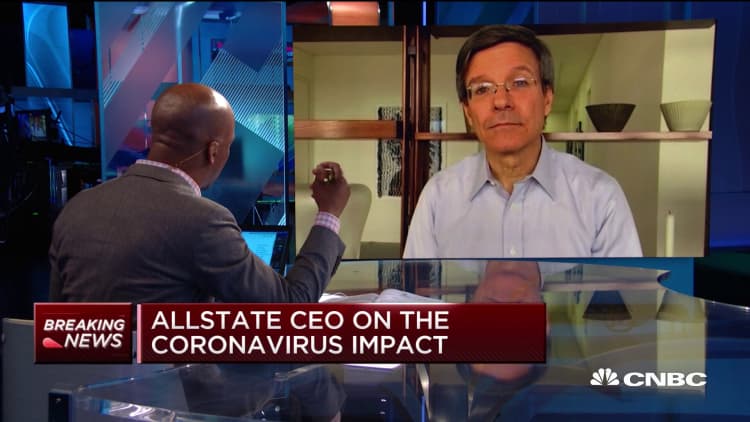Under normal circumstances, failure to pay any type of insurance premium results in a loss of coverage fairly quickly.
These aren't normal times.
In addition to insurance companies offering relief to customers who are struggling to pay their premiums, a handful of states are requiring insurers to provide extra time for people to make those payments without facing cancellation of their policies.
The type of insurance subject to those requirements varies from state to state and may range from auto or homeowners, health or long-term-care, to disability or life insurance.
"If you're in one of those states, you get a grace period," said Mark Fitzpatrick, a senior research analyst with ValuePenguin. "They're saying insurers cannot cancel a policy if you don't pay the premium.
"It's not a refund, though, so you'll have to pay it at some point."
The premium pauses also are separate from the recent spate of auto insurers announcing that they are returning a collective $6.5 billion to policyholders due to less driving and fewer accidents and claims amid the coronavirus crisis.
As the economy reels from government-ordered business shutdowns and stay-at-home orders, 68% of households now worry about being able to pay their bills, according to research from TransUnion.
With cash-strapped consumers seeking relief from their obligations, a delay in paying premiums without losing coverage could be a lifesaver. Depending on the type of insurance, reinstating your policy in normal times can be tricky or can come with higher premiums.
"Pre-virus, there was little forgiveness of the date money was due for any insurance product," said Robert Hunter, director of insurance at the Consumer Federation of America. "Now, in the Covid crisis, insurers and regulators have developed extensive plans of forgiveness.
"It varies by state but is quite widespread," he added.

Oregon is among the states that is requiring insurers to help customers by instituting a grace period for premiums as well as suspending all cancellations and nonrenewals. Ohio is requiring health insurers, as well as property and casualty, life and long-term care insurance, to provide a 60-day grace period for consumers to pay their premiums. Other states, including New Jersey, Washington and Mississippi, also have instituted similar requirements.
Regardless of where you live, it's worth contacting your insurance company to see if a relief program is available.
"Many insurers are allowing customers to delay their premium payments without penalties or to establish personal payment plans," said Mark Friedlander, spokesman for the Insurance Information Institute.
More from Personal Finance:
Avoid these mistakes with your 401(k) account
What happens if you have a 401(k) loan and lose your job
Why holding individual stocks can come back to hurt you
"Insurers are also pausing policy cancellations and non-renewals due to non-payment of premium invoices," Friedlander said.
Exactly how long the reprieve will last is uncertain. While many new grace periods for nonpayment are for 60 days, some consumers may struggle beyond that if economic conditions don't improve.
"I don't think it's clear at this point if insurers will extend [the relief]," said Fitzpatrick, of ValuePenguin. "In 60 days, if we're in a similar situation — with unemployment at a high level — it's possible they'll extend it.
"It seems to be a wait-and-see situation right now."


